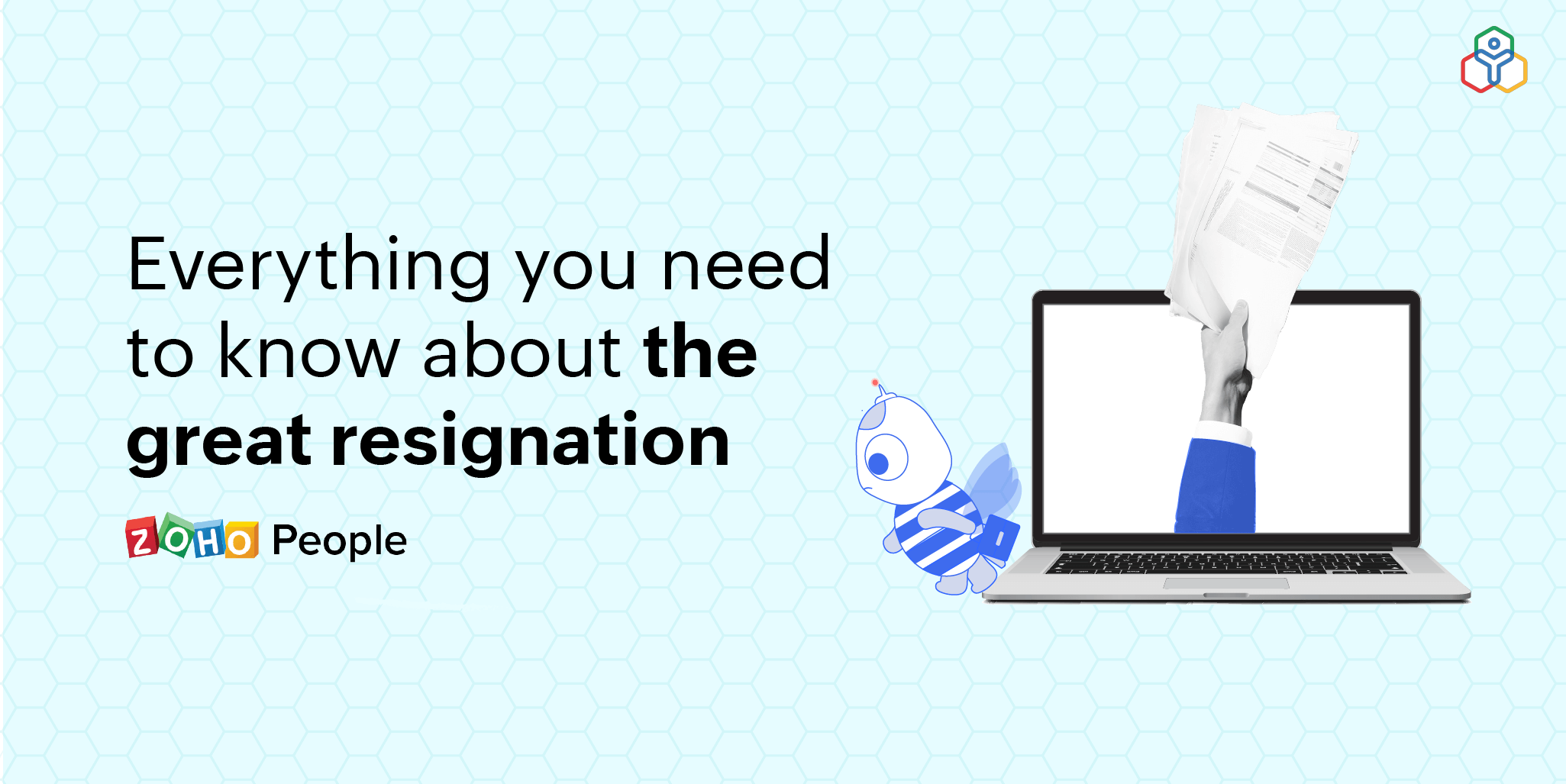- HOME
- HR insights
- How organizations can tackle the great resignation 2021
How organizations can tackle the great resignation 2021
- Last Updated : August 23, 2023
- 903 Views
- 4 Min Read

In what is called the great resignation of 2021, more and more employees are quitting their jobs in search of ones they are truly passionate about and organizations that treat them as people first and employees second. This came to light earlier this year when the Bureau of Labor Statistics (BLS) found that close to four million Americans quit their jobs in April, breaking a 20-year record. Similarly, nearly 5.6 million American employees quit their jobs in June.
But, why are employees suddenly quitting their jobs at record rates? Some employees are quitting because of the radical shift in how we work, accelerated by the pandemic. Some of them are quitting because they don't want to come back to the office, work 9 to 5, or experience the long commute. And still, others are quitting because of burnout, disengagement, and lack of work-life balance.
How employees were treated and managed by their organizations during the pandemic is playing a huge role in their decision to stay or quit. They no longer want to work in toxic work environments that put profits before people and push their employees hard to get ahead without incentives. They are looking for jobs that acknowledge the fact that they have a life outside of work.
As organizations are slowly stepping up their efforts to overcome the effects of the pandemic, they cannot afford to lose talented employees. With 10.1 million job openings, there are currently more job openings than candidates. That's why it's necessary to take steps and make sure employees don't quit in the first place. Here's how you can survive the great resignation of 2021 without losing your employees:
Foster trust and transparency at every level
Employees don't want to work for organizations that monitor and micromanage every action without letting them work independently. A culture of mistrust doubts your employee's loyalty and integrity, even while they are trying to go above and beyond for your organization.
To retain your top talent, trust them and be transparent about your business operations. Remember to integrate trust across every part of the relationship. For instance, encourage managers not to ask for an update every day. Instead, encourage them to let employees come up with solutions and ideas for their project rather than stuffing their ideas on the team. Respect their feedback and put it to use. Finally, be open about your business operations, employee performance, and how it has added value during performance reviews.
Revisit your compensation and benefits packages
Employees may prefer work-life balance, flexible working conditions, and career development. However, in order to attract and retain top talent, it's important to provide competitive pay that compensates employees fairly for their hard work.
A progressive culture that prioritizes employees alongside competitive pay can take your brand to the next level. Your employees will become your brand ambassadors and more candidates will want to join your organization in the future. Based on your organization's profits, make it a point to increase employee pay every year at a particular month. And also make sure to provide better employee benefits in the form of medical insurance, retirement plans, PTO, etc.
Prioritize employee well-being over anything
Investing in your employees' well-being is important now more than ever. Employees are leaving organizations that make them work at the cost of their well-being. According to the 2020 Employee Care Report, 44% of employees who experience burnout resent their employers. The same report has found that burned-out employees are two times as likely to convince their peers to quit their jobs along with them. Prioritizing employee well-being and making changes to how you manage your employees can go a long way in helping them prevent stress and burnout.
Encourage managers to be mindful while assigning tasks and set clear expectations that take into consideration the state of the ongoing pandemic. It's necessary to foster a positive work environment that builds better relationships among employees, peers, and managers. Make it easy for your employees to seek help when they are stressed or burned out and make health, wellness, and fitness activities a core part of your HR strategies.
Offer flexible working conditions
The COVID-19 pandemic has made employees realize that they can work effectively wherever they are. Remote work has shown that employees can avoid long commutes, spend quality time with their family, and take care of their kids, all while completing their work effectively. That's why many are now against employers and organizations that force them to come back to the office for fixed working hours, without compromise. To combat the great resignation 2021, offer flexible working conditions to employees, if possible in the form of unlimited PTO, flexible working hours, compressed workweek, or work-life integration policies. Check out our blog on flexibility to learn how to foster a flexible work culture.
Understand employee needs
Employees want to work for organizations that understand their needs. It's important to listen to what they actually want and act on their feedback, if it's fair. Conduct company town halls regularly to collect feedback, questions, and requests from employees. If a large set of employees are asking for something or complaining about a process, look into it and make sure it is rectified. If you are unable to, let them know the reason that process is in place. Catering to genuine employee needs can ensure a happy, productive, and engaged workforce.
Wrapping up
The great resignation of 2021 can make it difficult for your organization to replace talented employees. The key to surviving these uncertain conditions is to hold on to your existing employees by introducing employee-centric initiatives that prioritize their well-being. It's important to introduce them before it's too late!
 Tarika
TarikaContent Specialist at Zoho People











